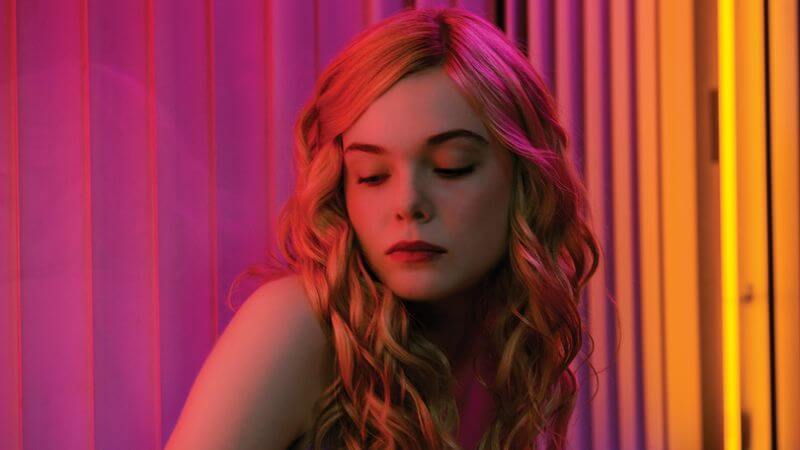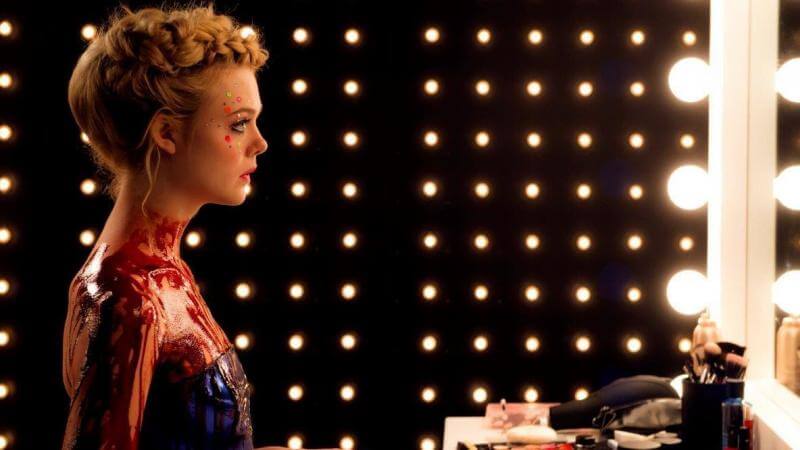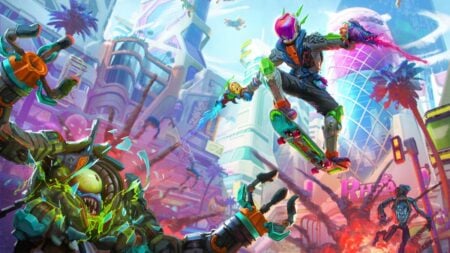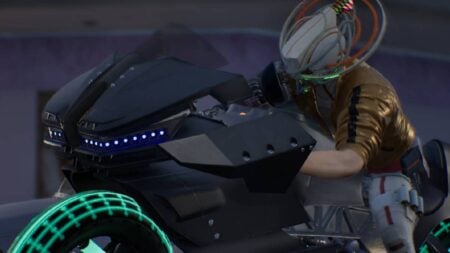Title: The Neon Demon
Release Date: June 24, 2016
Studio: Amazon Studios/Broad Green Pictures
Director: Nicolas Winding Refn
Most movies serve as entertainment, a form of escapism from our own lives. Many, but not all, serve to tell stories in a linear or non-linear manner. Others serve as messages. Some serve as works of art above all else. The Neon Demon, the latest from Danish auteur Nicolas Winding Refn, definitely falls into the camp of visual art. Make no mistake about it: every frame of this film is meticulously constructed to evoke the senses. Refn paints with a variety of brushes that hearken back to fellow filmmakers such as Dario Argento to David Lynch. With so much technical wizardry at the forefront, it is a shame that I left the theater genuinely disgusted and perplexed at Refn’s intentions.
The Neon Demon centers on Jesse (Elle Fanning), an aspiring underage model living in the heart of Los Angeles. She’s a true outsider to practically everyone, with the exception of makeup artist Ruby (Jena Malone) and her “boyfriend” Dean (Karl Glusman). As the film unfolds and she becomes more involved in the world of modeling, things become increasingly more complicated.

If you are unfamiliar with the films of Refn, do not expect a fully-formed narrative or deep characters. These are not Refn’s preoccupations when making a movie, and there’s nothing inherently wrong with that if the style and themes can compensate. Compared to Refn’s equally divisive Only God Forgives, there is much more cohesion as far as the story goes. Much of this coherence turns out to be false, though. Refn all too often inserts confusing sequences that convey very little despite brilliant camerawork and lighting. Any remnants of substance are squandered by the time the third act rolls around. After 90 minutes of hollow preamble, Refn undoes the slow-burn tension with a lazy denouement of the fashion industry. It is in that moment where Refn finally reveals himself as a pornographer by indulging his crude metaphor about fashion “cannibalism.”
The performances of the cast do not succeed at complimenting the audacious visuals. Elle Fanning, who is the epicenter of this film, seems to be on autopilot. Her character on paper goes through a very interesting arc. She starts out as a well-intentioned but timid schoolgirl to eventually the incarnation of natural beauty. Her entire change is done visually and the one scene depicting this change comes out of nowhere. For a film that seems dead set on exposing the theatrics and absurdities of the fashion industry, little is done by the actors to reflect that. The only one who left an impression on me was Keanu Reeves as a sleazy hotel manager. Not only does his line reading mimic the off-kilter Nicolas Cage, his character is a sexual predator. He oozes slime out of every pore as he goes out of the way to demonstrate that he is a scumbag.
Refn’s decision to return to the city he shot so beautifully in Drive turns out to be a smart move. There is no question that this is L.A. but there is always a dreamlike quality to how every frame is juxtaposed. I don’t think this is any coincidence considering how much I was reminded of David Lynch’s Mulholland Drive while watching this film. Another collaborator who returns to work with Refn is composer Cliff Martinez. Once again, he has brought his A-game to this picture, producing a brilliant medley of electronic music.

Thematically and metaphorically speaking, The Neon Demon is about as shallow as the industry it critiques. When it is not being shallow, the allegories are far too blatant. There’s one scene in particular in which a fashion designer points out natural beauty will always trump artificial beauty. Considering how perverted all of the male characters are, this is not an out of line statement within the confines of the film. I would have liked to have seen this taken one step further because one of the main models points out her cosmetic surgeries on multiple occasions. What if the film ran with that by creating a real dichotomy between that character and Jesse? There is an attempt to do so but it is only through shock value during the repulsive final act.
Maybe there is something I am missing, as I have read many positive reactions to this film. These kinds of films attract that attention on principle, especially now that we are in the season of blockbusters. I admire Refn’s commitment to applying his audacious style to every film he makes. With that said, The Neon Demon was a trite disappointment from someone I do admire. He definitely succeeded in making a conceptual art piece but that is precisely why I don’t care for filmmakers like Argento or Peter Greenaway. I want to admire and study pieces like that in a museum and not in a theater.
Characters: All of the characters are strictly archetypes or caricatures of the fashion industry. It is difficult to connect with them on any emotional level.
Cinematography: Refn and his cinematographer play to their strengths here. Whether it’s the dusky portrayal of L.A. or the hypnotic visuals, every frame is a treat to look at.
Story: Although it is much more linear than Refn’s last directorial effort, it relies too heavily on “dream logic” and hallucinations to carry the narrative.
Acting: Everyone gives a very stilted performance, with the exception of Keanu Reeves who seems to be in a different movie entirely. It’s obvious when there were scenes with improvisation because the performances lack direction even more so than they usually do.
[review]







